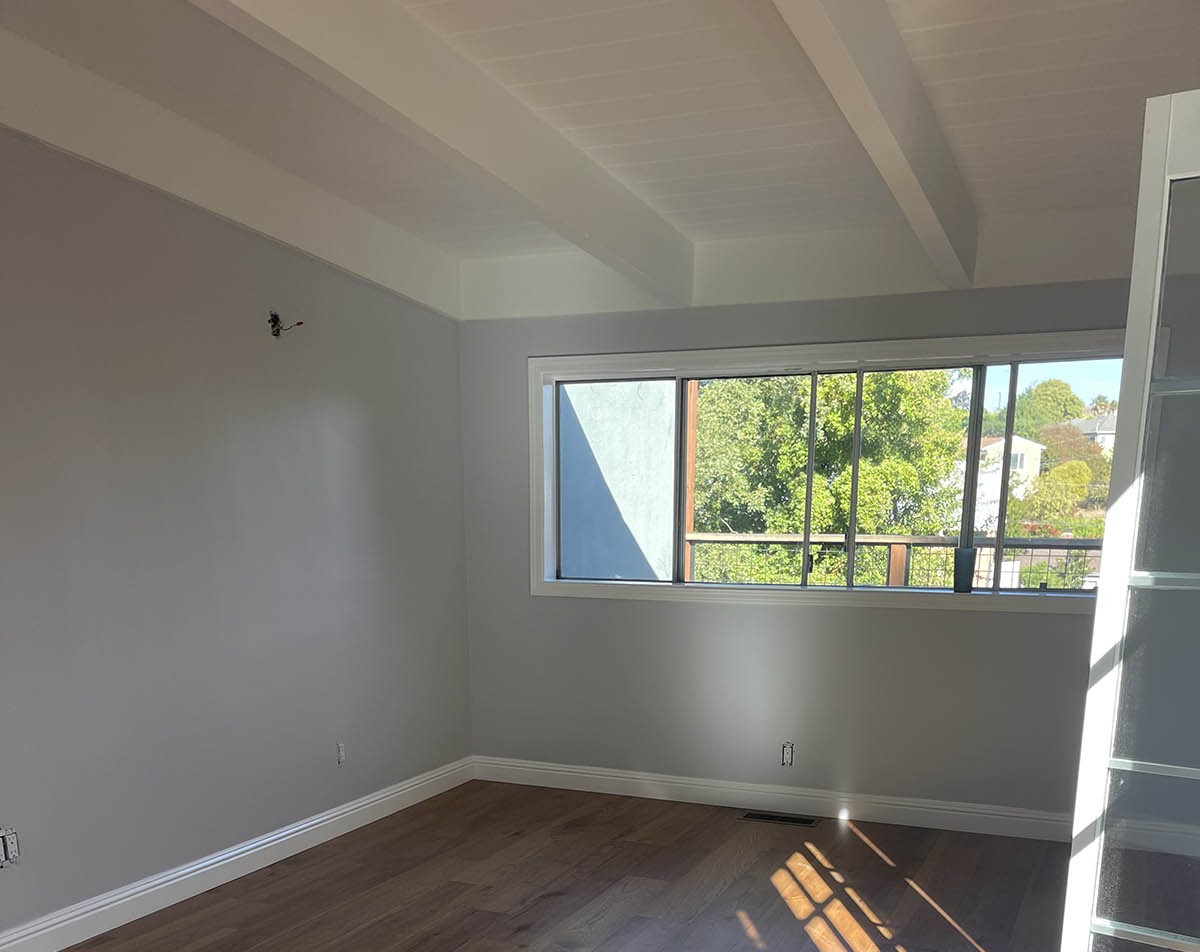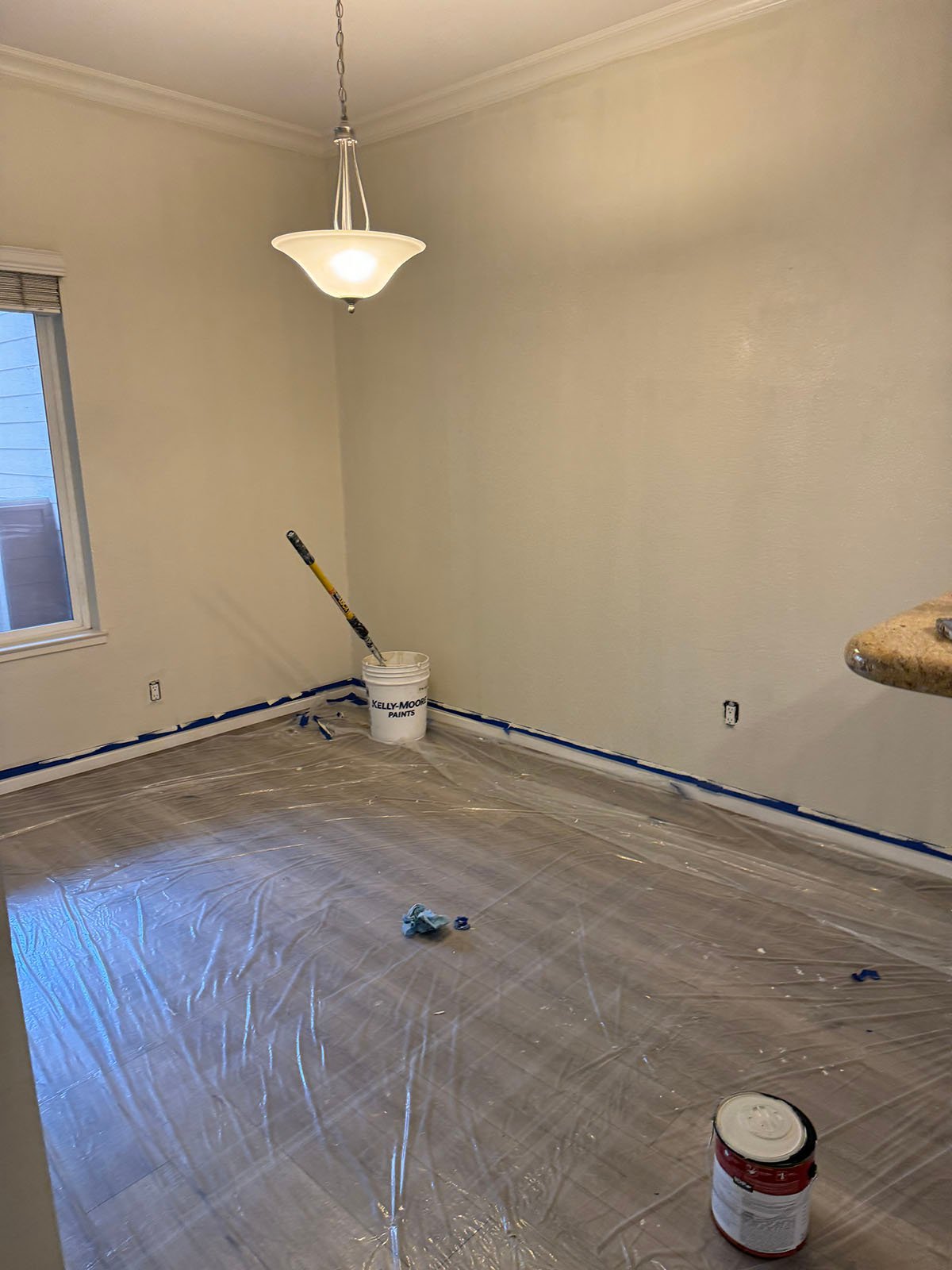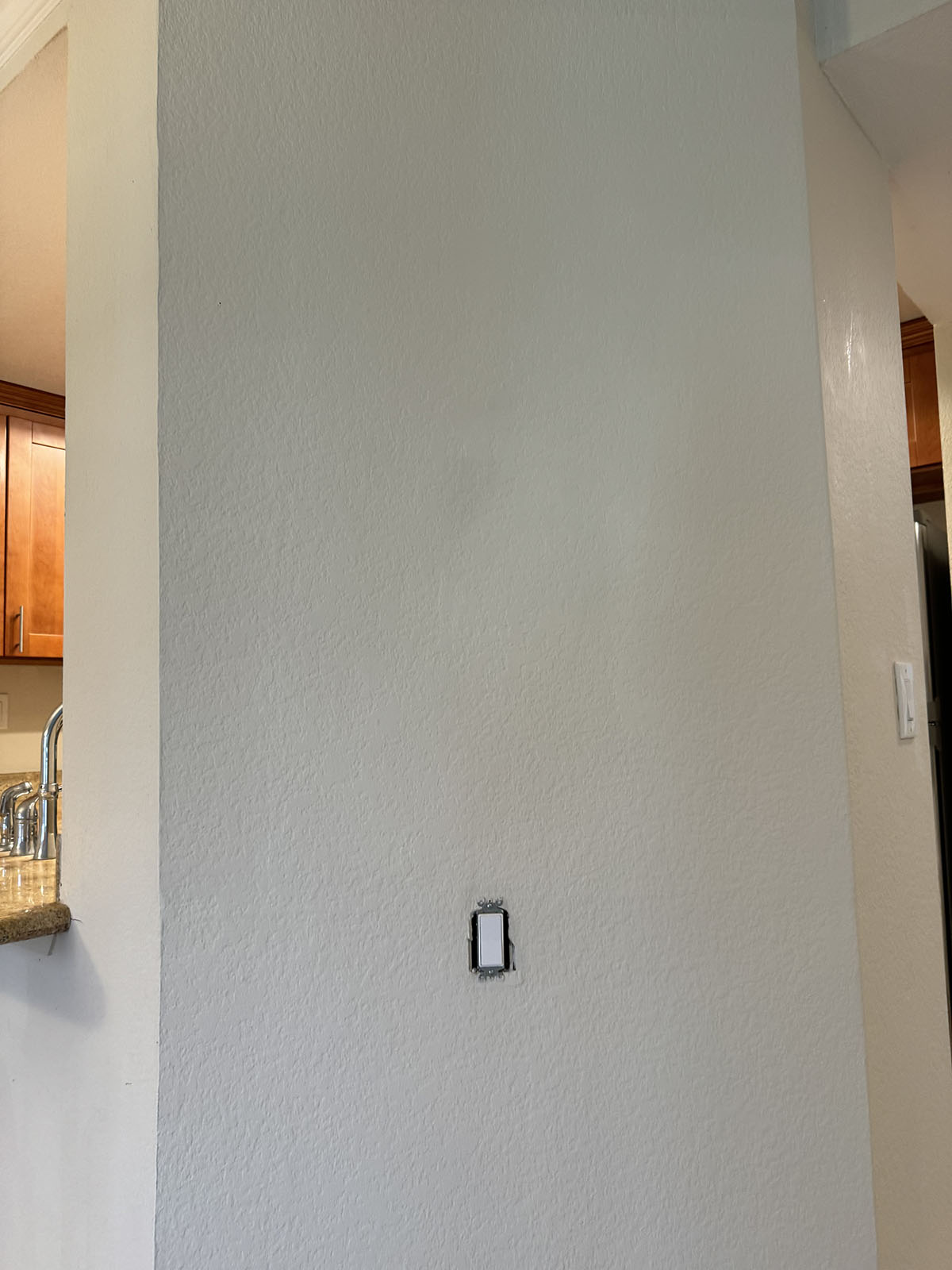
Painting a room can be a refreshing update for your home or business. However, one common downside to the process is the lingering paint smell that comes with it. If you’ve recently painted or are planning to, you might be wondering: how long does it take paint smell to go away? The answer depends on a few things, like the type of paint, how well the room is ventilated, and the overall room conditions. In this blog, we’ll cover how long paint odor lasts, what affects it, and what you can do to eliminate it faster.
Whether you’re using oil-based or water-based paints, that “new paint smell” can linger longer than expected. Understanding why the smell exists and how to mitigate it can help you enjoy your freshly painted space sooner, without holding your nose.
Common Factors That Affect How Long Paint Smell Lasts
Some rooms clear out in a few hours, while others may take several days. Here are the key factors:
- Type of Paint Used: Oil-based paints tend to smell stronger and longer than water-based or latex paints.
- Room Ventilation: Well-ventilated rooms allow fumes to dissipate more quickly.
- Temperature and Humidity: Warm, dry conditions promote faster drying and odor dissipation.
- Room Size: Smaller rooms with poor air circulation tend to retain paint odors longer.
- Number of Coats Applied: More paint layers can look great, but they also mean longer drying time and can make the smell hang around more.
How Long Does Paint Smell Last?
Paint smell lasts from 24 hours to a week, depending on the type of paint used. Latex and low-VOC paints usually air out within a day or two, while oil-based paints can emit strong fumes for a week or more.
Paint Smell Duration by Type
Here’s a closer look at how long the smell lasts based on the type of paint:
- Latex Paints: Typically, 24 to 48 hours.
- Low-VOC or Zero-VOC Paints: 3 to 8 hours, often much shorter.
- Oil-Based Paints: 2 to 7 days, sometimes longer in enclosed spaces.
If you’re particularly sensitive to smells or have young children or pets at home, opting for a low-VOC or zero-VOC paint is the best way to reduce exposure to lingering fumes.
How to Get Rid of New Paint Smell Quickly?
There are several tried-and-true methods to eliminate or significantly reduce the smell of paint in your home.
Best Tips for Removing Paint Odor
- Open Windows and Doors: This is the easiest and most effective method to let fresh air flow through.
- Use Fans: Set up oscillating fans or exhaust fans to help circulate air and push fumes out.
- Place Bowls of Baking Soda or Vinegar: Both are natural odor absorbers.
- Charcoal: Activated charcoal is great at absorbing and neutralizing odors.
- Onions: It might surprise you, but sliced onions can soak up and get rid of paint smells.
- Air Purifiers: HEPA air purifiers with carbon filters can help clean the air.
- Houseplants: Plants like peace lilies and snake plants can slightly improve indoor air quality.
- Candles and Essential Oils: Scented candles or diffusers can help mask the odor, but they don’t eliminate it.
Ready to Transform Your Space?
Don’t wait, your dream paint job is just a click away. Book your free estimate today!
Is Paint Smell Harmful?
Paint fumes aren’t just annoying, they can also pose health risks, especially in poorly ventilated areas. While modern paints are much safer than older formulations, it’s still important to limit your exposure.
Health Effects of Paint Fumes
Short-Term Exposure:
- Headaches
- Dizziness
- Nausea
- Eye, nose, or throat irritation
Long-Term Exposure:
- Respiratory issues
- Nervous system effects
- Liver or kidney damage (primarily with prolonged exposure to high-VOC paints)
Be sure to check the paint label and safety data sheet to understand what you’re using. When in doubt, wear a mask and ventilate thoroughly.
Best Practices to Prevent Paint Smell from Lingering
Rather than dealing with the paint odor after the fact, why not take steps to prevent it in the first place? A few precautions during your painting project can go a long way in keeping your space fresh.
Tips for a Fresher Painting Experience
- Low-VOC and zero-VOC paints are designed to produce fewer toxic fumes, offering better protection for your family and the environment.
- Paint When the Weather is Dry and Mild: This helps the paint dry faster.
- Prep the Room for Airflow: Plan ahead to ensure good ventilation throughout the process.
- Use Odor-Absorbing Additives: Some additives can be mixed into your paint to neutralize odor as it dries.
- Limit Time in the Room: Avoid staying in freshly painted rooms for long, particularly in the first 24–48 hours.
- Hire Professional Painters: Experts like RR Pro Painting use efficient techniques and high-quality products to minimize odor.
When to Be Concerned About Lingering Paint Smells
While it’s normal for a room to smell like paint for a few days, smells that linger beyond a week might indicate a problem.
Warning Signs to Watch For
- Odor Persists for Over 7 Days: Especially if the room is ventilated.
- You Experience Ongoing Health Symptoms: Headaches, respiratory issues, or allergic reactions.
- Mildew or Damp Smell Appears: This could signal improper drying or hidden moisture damage.
- Unusual Paint Behavior: Sticky surfaces or delayed curing can mean something’s wrong.
In such cases, consult a professional painter or indoor air quality specialist to assess the situation.
Final Thoughts
So, how long does it take paint smell to go away? While most water-based paints will clear up in a day or two, oil-based and high-VOC paints can take up to a week. Factors like ventilation, humidity, and temperature play a big role in how fast odors disappear.
By understanding what contributes to lingering smells and using smart techniques to eliminate them, you can enjoy your beautifully painted space without holding your breath.




